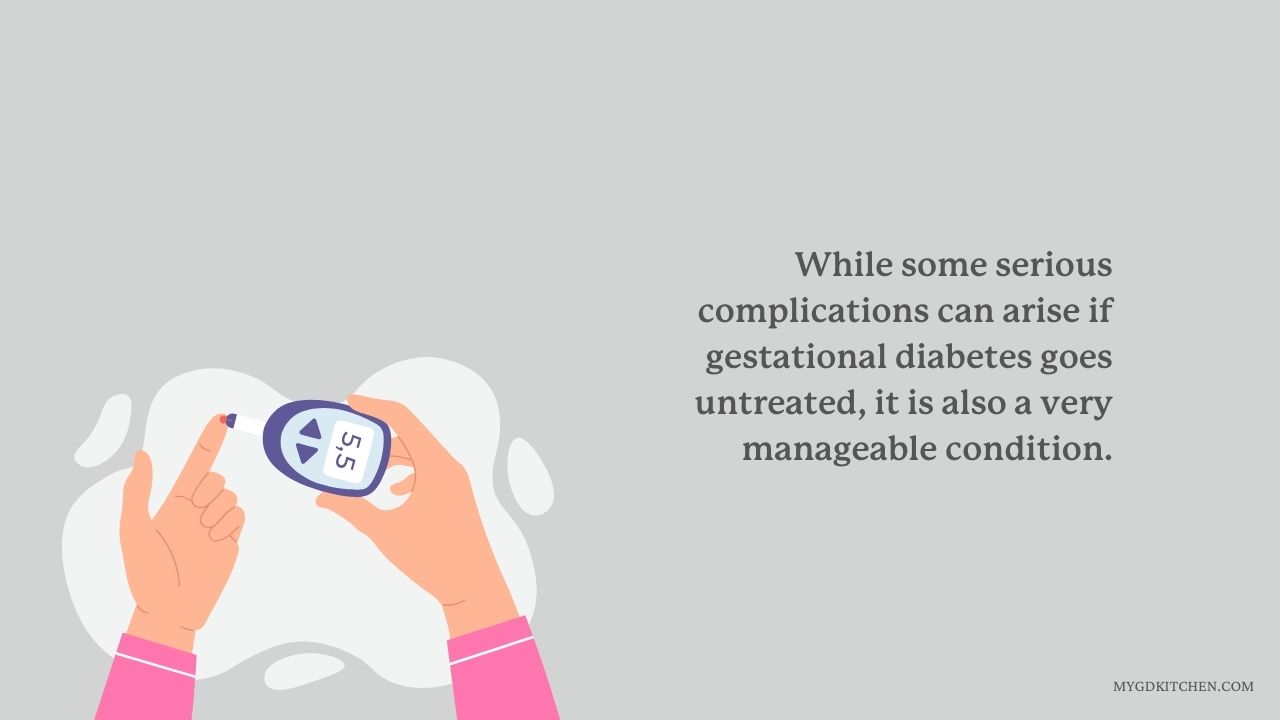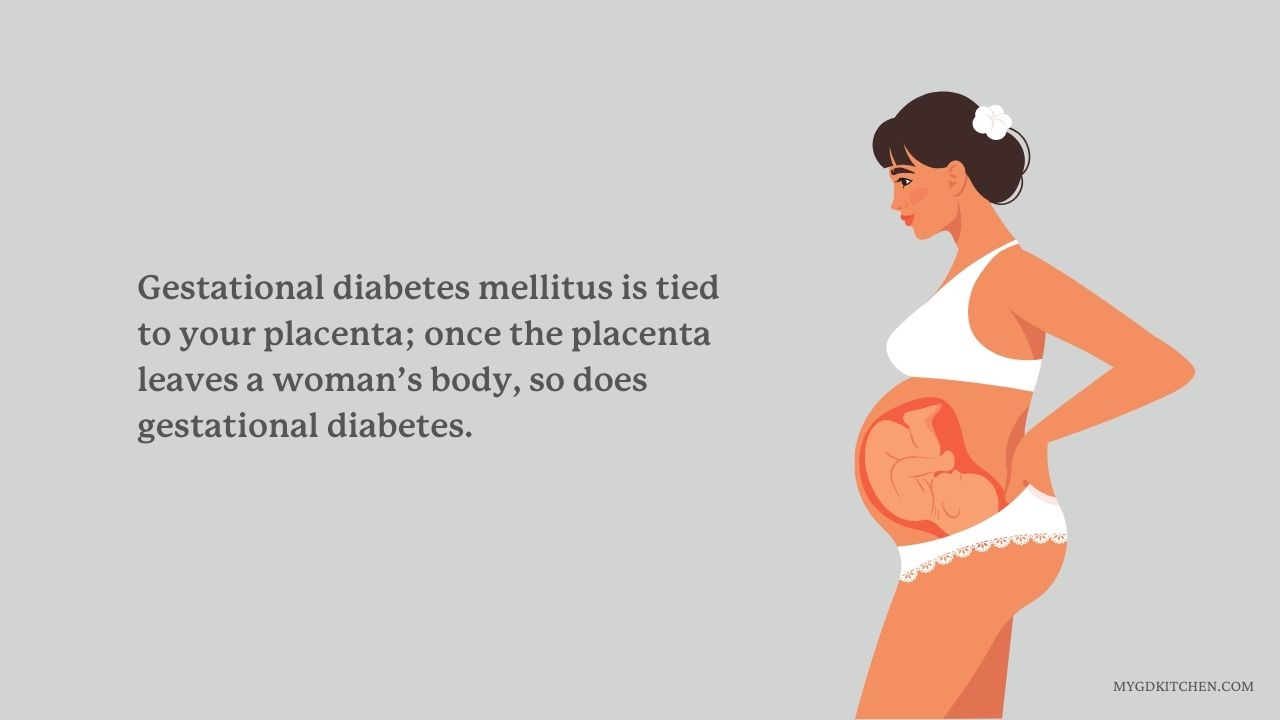When Does Gestational Diabetes Mellitus Go Away?

Introduction
Roughly 10% of pregnant people will develop gestational diabetes mellitus (GDM). If you are one of them, take a deep breath! While some serious complications can arise if gestational diabetes goes untreated, it is also a very manageable condition.
Post-diagnosis, one of your top questions is likely, “When does gestational diabetes go away!?” Fear not: gestational diabetes does not last forever. Because GDM is linked to the hormones in your placenta, once the placenta is delivered, GDM goes away.
(It is worth noting: having gestational diabetes does increase your risk of developing type 2 diabetes later in life. This is something you can monitor with your doctor over time.)

How Will I Know If I Have Gestational Diabetes In The First Place?
Gestational diabetes seldom comes with signs or symptoms. If you do have symptoms, they will be similar to those you’d experience with type 2 diabetes. They include:
- Excessive thirst or hunger
- Fatigue beyond normal
- Increased need to urinate
- Blurry vision
- Nerve pain or tingling in extremities
But because symptoms are rare, your doctor will not rely on them. Between weeks 24-28 of pregnancy, you will be given a Glucose Challenge Test. If you do not pass, then you will be given a Glucose Tolerance Test.
Does Gestational Diabetes Go Away?
Yes! Gestational diabetes mellitus is tied to your placenta; once the placenta leaves a woman’s body, so does gestational diabetes.
However, having gestational diabetes during your pregnancy is associated with some future risks: there is a greater chance you will develop type 2 diabetes within 5 years. The risk factors that predispose you to developing gestational diabetes in the first place are similar to those for type 2 diabetes.
Remember: having risk factors does not mean developing type 2 diabetes is a forgone conclusions, not by a longshot!
Gestational Diabetes Treatment Helps Long-Term
To help manage blood sugar levels, reach for protein, healthy fats, non-starchy vegetables, and fiber. Even after you give birth and no longer have gestational diabetes, these food choices will help you maintain more stable blood sugar levels.
Staying active in whatever way you like to move your body will also help you keep your blood glucose levels more stable over time.
Most importantly, follow your doctor’s instructions and treatment plan. They will likely suggest you meet with a dietician; make sure to seek one out who has specific experience with gestational diabetes!

Conclusion
When you are diagnosed with gestational diabetes, it is totally normal to feel worried. Rest assured, this condition is one you can definitely manage, and also one that will go away once your baby is born.
Take a deep breath! Focus on the joy of bringing a new baby into the world and doing your very best for a healthy, happy future. Postpartum, follow up with your physician and maintain your healthy habits to minimize risks down the road.
Where Can I Get More Support?
GD Kitchen! I created this resource to solve a problem I wish someone had already solved before my first GD pregnancy. I teamed up with OB Rachael Sullivan, DO and nutritionist Jamie Askey, RN, so that you'll have all the resources, and all the confidence, I wish I’d had.
Looking for more? Check out the Blog, or try six free recipes here.
What else do we offer? Read more about The GD Starter Pack and The Recipe Membership.





